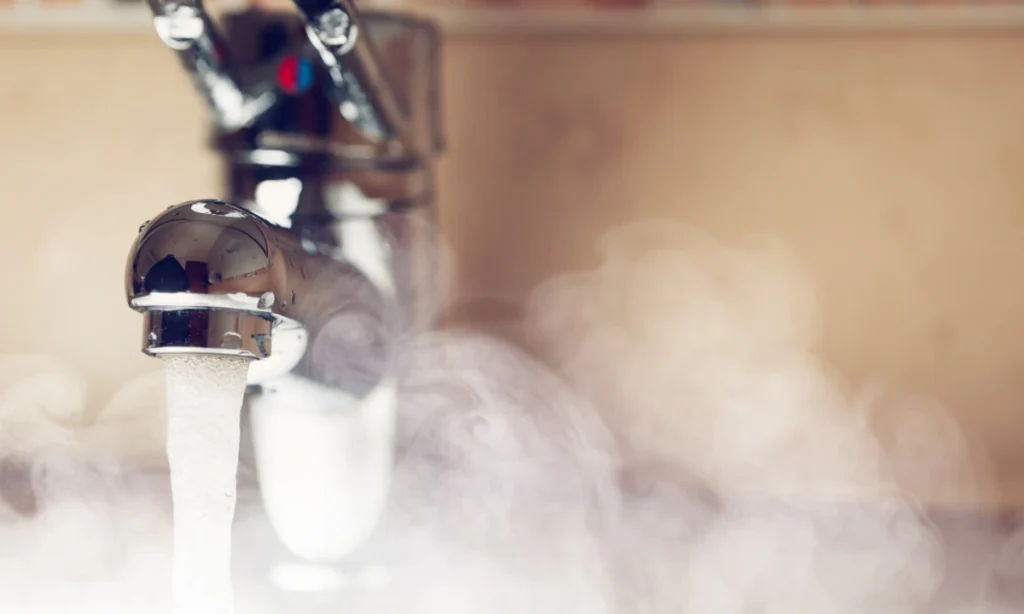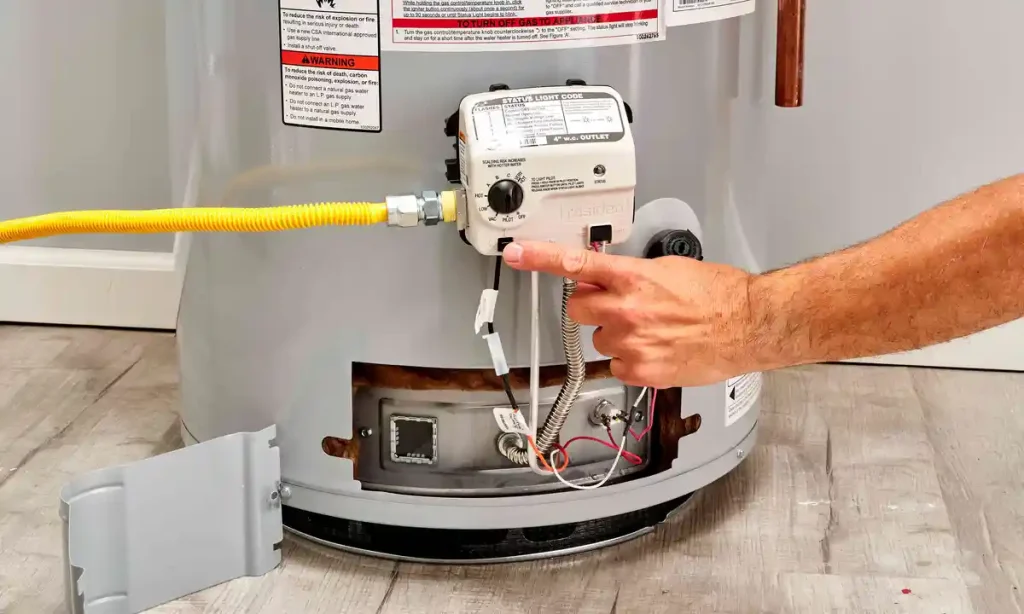Water heaters are an essential part of our daily lives, providing hot water for bathing, cleaning, and various household tasks. However, like any other appliance, water heaters can experience issues over time. In this article, The Pro Plumbing will discuss ten common water heater issues and provide practical solutions to fix them. Whether you’re dealing with a lack of hot water, leaks, or strange noises, we’ve got you covered. Let’s dive in and troubleshoot your water heater issues!
Insufficient Hot Water
Intro: Are you frequently running out of hot water, leaving you with icy showers? This can be frustrating, but there are several potential causes.
Solution: Check the thermostat setting on your water heater and ensure it’s set to the desired temperature. Sediment buildup in the tank can also affect heating efficiency, so consider flushing the tank to remove any debris. If the issue persists, the heating element might need replacement.

No Hot Water
Intro: If your water heater isn’t producing any hot water at all, there could be a few reasons behind the problem.
Solution: Start by checking if the power supply to the heater is functioning correctly. Resetting the circuit breaker or replacing a blown fuse might solve the issue. Another possible cause is a faulty pilot light or gas valve. In such cases, it’s advisable to seek professional assistance to ensure safety.
Water Leaks
Discovering water leaks around your water heater can be concerning. Ignoring leaks can lead to significant water damage and mold growth.First, check for loose connections and tighten them if necessary. Replace any faulty valves or pressure relief devices that might be causing leaks. Leaking pipes can be repaired by applying plumber’s tape or replacing damaged sections. A leaking tank may require professional assistance to repair or replace. Excessive pressure can lead to leaks, so adjust the pressure valve accordingly. Sediment buildup can be resolved by flushing the tank. Leaking temperature and pressure relief valves should be replaced. Insulate hot water pipes to prevent condensation and leaks. Leaking drain valves should be tightened or replaced. Finally, ensure proper installation and maintenance to prevent future leaks
Strange Noises
Unusual noises coming from your water heater, such as rumbling or popping sounds, can be indicators of underlying issues.Sediment buildup is often the culprit behind these noises. Flushing the tank can help remove the sediment, improving the heater’s efficiency and reducing the noise. If the noises persist, it could indicate a more severe problem, such as a failing heating element or a buildup of pressure, which requires professional attention.
Smelly or Discolored Water
If your hot water has a foul odor or appears discolored, it can be unpleasant and concerning. This can be caused by various factors.In most cases, the smell or discoloration is due to bacterial growth in the tank. Flushing the tank with a hydrogen peroxide solution can help eliminate the bacteria. If the issue continues, it might be related to the anode rod in the tank, which can be replaced by a professional.
High Energy Bills
High energy bills can be caused by common water heater issues. One issue is sediment buildup, which reduces efficiency. Flushing the tank regularly can solve this problem. Another problem is a faulty thermostat, leading to overheating and excessive energy consumption. Adjusting or replacing the thermostat can fix this issue. Insufficient insulation or a leaky tank also result in heat loss and increased energy usage. Adding insulation or repairing the tank can help. Finally, a malfunctioning pressure relief valve can waste energy. Replacing the valve ensures proper functioning. Regular water heater maintenance, including these fixes, can help reduce energy bills and improve water heater performance.
Pilot Light Problems
Gas water heaters rely on a pilot light to ignite the gas burner. If the pilot light goes out frequently or won’t stay lit, it can prevent your water heater from functioning properly. Follow the manufacturer’s instructions to relight the pilot light. If it continues to go out or won’t stay lit, the issue might be a faulty thermocouple. Replacing the thermocouple should resolve the problem, but it’s recommended to consult a professional for proper installation.
Water Pressure Issues
If you’re experiencing low water pressure or inconsistent water flow from your hot water taps, there may be an issue with your water heater. One problem is a clogged or faulty pressure relief valve. Flushing the valve or replacing it can resolve the issue. Another cause is a buildup of sediment or mineral deposits in the water lines. Flushing the water heater and cleaning the pipes can help restore proper water pressure. Additionally, a malfunctioning pressure regulator valve can lead to low or inconsistent water pressure. Adjusting or replacing the valve can address this problem. Regular maintenance, including these fixes, can ensure optimal water pressure and improve the overall performance of the water heater.
Rapid Temperature Fluctuations
Does the water temperature fluctuate dramatically while using hot water? This can make it challenging to maintain a comfortable temperature for showers or other tasks.Inspect the thermostat on the water heater and ensure it’s functioning correctly. A faulty thermostat might cause the temperature to fluctuate. If the thermostat is working fine, the issue could be a malfunctioning mixing valve or a problem with the heating element, which should be addressed by a professional.
Age-related Degradation
Over time, water heaters can deteriorate due to aging, leading to various issues and reduced performance.Solution: If your water heater is reaching the end of its lifespan (typically around 10-15 years), it may be more cost-effective to replace it rather than continuously repairing it. Consider investing in a newer, energy-efficient model that can provide better performance and lower utility bills.
Here Are Some Questions For Water Heater Issues:
What is usually the most common water heater problem?
–The most common water heater problem is a buildup of sediment in the tank, which can lead to reduced efficiency and performance.
What are common causes of hot water heater not working?
–Common causes of a hot water heater not working include a faulty heating element, a tripped circuit breaker, or a malfunctioning thermostat.
How do I know what’s wrong with my water heater?
–You can diagnose issues with your water heater by checking for signs such as no hot water, strange noises, leaks, or a pilot light that won’t stay lit.
What trips the reset button on a hot water heater?
–The reset button on a hot water heater is typically tripped when the water temperature exceeds the safety limit or when there is a malfunction in the heating system.

Conclusion:
Water heater problems can disrupt our daily routines and cause inconvenience. By understanding these common issues and their solutions, you can troubleshoot and fix many water heater issues yourself. However, if you’re unsure or uncomfortable with the troubleshooting process, it’s always best to seek professional help to avoid potential hazards. Remember to perform regular maintenance and inspections to ensure your water heater operates efficiently and reliably, providing you with a consistent supply of hot water.

